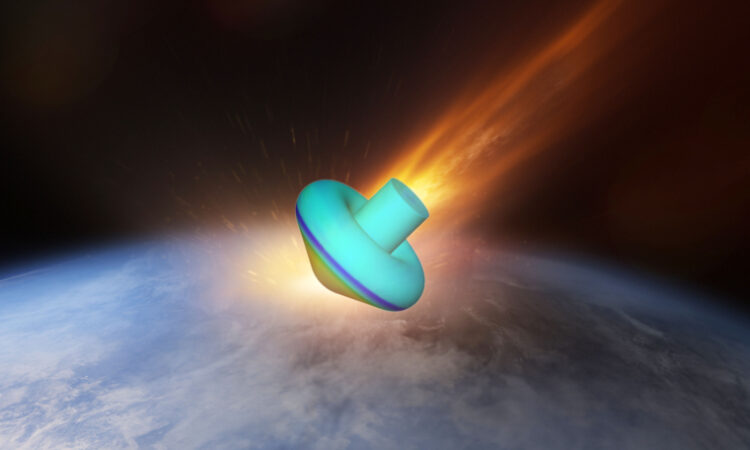
A European consortium led by Spanish mission and system integrator Deimos is collaborating to demonstrate the feasibility of developing an inflatable heatshield (IHS) for recovering rocket stages from space.
The innovative technology could also be adopted to protect precious cargo during re-entry and descent to Earth, and might eventually be used for missions landing payloads on Mars.
ICARUS (Inflatable Concept Aeroshell for the Recovery of a re-Usable launcher Stage) will be developed in three phases over four years, with a demonstrator test mission envisaged for 2028.
Inflatable heatshields, known in space industry jargon as inflatable atmospheric decelerators (IADs), could be a fundamental new way to decelerate and protect various space systems during re-entry and descent.
They are viewed in the industry as a potential game-changer due to intrinsic key features such as low re-entry ballistic coefficient, which can reduce mechanical and aerothermal loads during re-entry.
Integrating ad-hoc guidance, navigation and control (GNC) systems would further enhance these capabilities and allow the possibility of precision-landing applications on Earth and Mars.
They can be used to recover and therefore potentially re-use segments of various space systems including rocket stages making the latter more sustainable with less impact on the environment.
Deimos has received €10 million worth of funding by the European Commission (EC) as part of its Horizon Europe programme. This latest round is a follow-on project to EFESTO-1 (€3 million) and EFESTO-2 (€2 million), funded by Horizon 2020 and Horizon Europe respectively.
The three key phases of ICARUS will cover mission and system design (including ground maturation of related ground-based technologies, a flight test and post-flight analysis of data collected during the test.
CEO of Deimos, Simone Centuori, said: “This is one of the most innovative projects of the decade encompassing a group of first-rate research organisations and companies.
“ICARUS is a key technological enabler for Europe, which will revolutionise European re-entry technologies, supporting applications like recovering rocket stages and hypersonic entry on Mars.
“It also signifies a great future contribution to space sustainability. With its potential to return launch vehicles and elements of satellites safely to Earth, it can become a game changer to the launch industry.”
The Deimos-led consortium, includes the German Aerospace Centre (DLR-MORABA and DLR AS-HYP), the Italian Aerospace Research Centre (CIRA), the French Aerospace Research Centre (ONERA), Pangaia Grado Zero (Italy), Politecnico di Torino (Italy), Atmos Space Cargo (Germany), HDES Service & Engineering (The Netherlands) and Demcon Advanced Mechatronics (The Netherlands).






